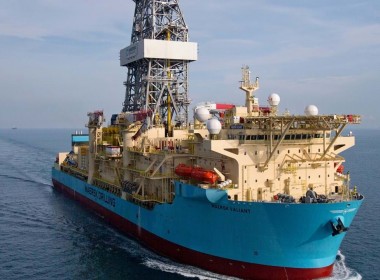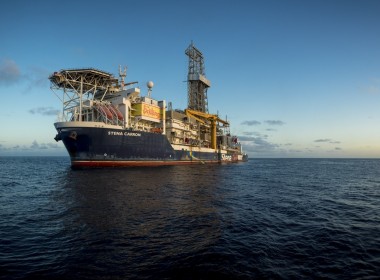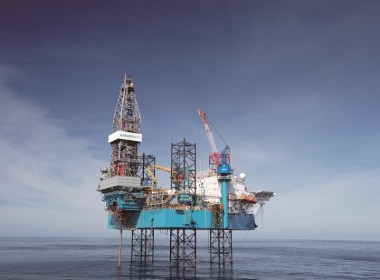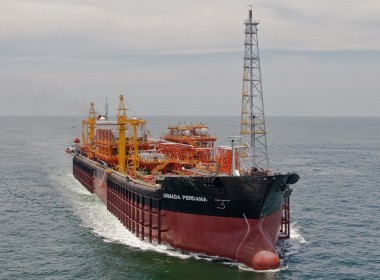COLUMN | See you in court: Pacific Drilling, Bumi Armada and SBM – Part 1 [Offshore Accounts]

If you want to meet the movers and the shakers of the offshore industry, you don’t need to pay big bucks to attend an expensive conference. Instead, you simply have to go to your local courthouse, and watch them battle over millions of dollars there. January has seen three high impact cases featuring contract disputes, corruption testimony and massive arbitration awards.
Pacific Drilling “surprised and disappointed” at US$320 million arbitration defeat
Firstly, Pacific Drilling was slammed with a US$320 million arbitration award to Samsung Heavy Industries, on January 15, which sent its share price plunging 25 per cent. Master of understatement, Pacific Drilling’s CEO, Bernie Wolford, commented, “The company is surprised and disappointed by the tribunal’s decision.”
Pacific Drilling had ordered the high specification drillship Pacific Zonda from the Korean rig builder at the very top of the market in January 2013 for US$517 million through a subsidiary. However, as the oil price plunged, and deep-water drilling activity ground to a halt, the driller cancelled the order in October 2015, claiming that the yard had failed to deliver the vessel on time in accordance with the contractual specifications. Samsung took the case to arbitration in England under the building contract, countering that the cancellation was invalid.
This month the arbitration tribunal in London awarded Samsung US$320 million. Worse for Pacific Drilling, the award excludes approximately $100 million in interest and costs sought by the yard on top. The arbitrators have reserved making a decision on that claim until a later date. Pacific Drilling has until February 12 to appeal.
Koreans win, but don’t get cash
Pacific Drilling promptly rushed out a statement that the company does not expect the tribunal’s decision to have any material adverse effect on its operations, or to cause any default under any of its loans or notes, as it will simply liquidate the subsidiaries which lost the case, which remained in Chapter Eleven when the rest of the company was reorganised in 2019.
There is, apparently, no recourse by Samsung to the holding company. But Pacific Drilling said it expects to recognise a loss of around US$225 million during the fourth quarter of 2019, primarily related to the elimination of the investment it had made in the rig up to the time of the cancellation, which has been sitting on its balance sheet as a receivable item.
Pacific Drilling worked out this value using, “a probability weighted approach to estimate the value of assets associated with the Zonda arbitration… The analysis included estimating probabilities of success for the various outcomes and expected cash flows associated with each outcome. The probability weighted cash flows were discounted to the balance sheet date using market data.” Looks like they messed that up to the tune of US$225 million then (quote from the Q3 filing here)
Pacific Zonda itself remains sitting at the anchorage at the Samsung Heavy Industries yard in Geoje, South Korea in a nearly finished state. You can read the Korean press coverage of the case here. If you have a few million on hand, you can probably buy the unit.
All the money Pacific Drilling will lose on the ill-fated Zonda has already been spent, and the arbitration defeat shouldn’t drain any more cash from the company. The non-recourse nature of the shipbuilding contract is critical, so for Samsung the award is bitter sweet. But it removes any upside for Pacific Drilling’s shareholders from the arbitration, unless the company decides to appeal and is successful.
Bumi Armada: Whacked by Woodside, considering an appeal
On January 24, Woodside announced that the august Supreme Court of Western Australia had ruled in its favour, and had thrown out the claim by Bumi Armada for US$283.5 million compensation for the termination of the contract for the Armada Claire FPSO unit that had been operating for the Australian oil and gas company in Balnaves Field, off north-western Australia from August 2014.
In March 2016 Woodside cancelled the contract, citing “performance related issues”. Bumi Armada, via its Armada Balnaves subsidiary, deemed the contract termination unlawful, and then took legal action against Woodside, seeking US$283.5 million in compensation. The court did find that Woodside owned Bumi US$1.5 million relating to disputes invoices, but rejected the compensation claim.
Bumi is now considering an appeal. Again, there is no further cash outgoing to the company for losing the claim, but shareholders lose the prospect of any upside from winning compensation.
“Bumi Armada is currently reviewing the judgment and considering possible grounds of appeal. Any appeal is to be lodged by February 14, 2020. Bumi Armada will provide updates from time to time on any further material developments on this matter,” Bumi Armada said in this statement to the Malaysian Stock Exchange on January 28.
Another peak-of-market contract turned sour
Bumi Armada had originally signed the Armada Claire FPSO deal with Apache in 2011. In 2015 Apache sold its Australia operations to Woodside, and Woodside eventually terminated the FPSO contract just as the oil price fell, Belnaves field production declined, and, co-incidentally, the FPSO also apparently failed to perform as promised, all at the same time.
Production at Balnaves in the final three months of 2015 was reported by Woodside to be nearly 40 per cent down on the previous quarter, due to what Woodside called “natural decline”. Woodside Chief executive Peter Coleman commented in in the industry press at the time of cancellation that Balnaves field, “has been disappointing for us, to be honest… it was always a short-life opportunity and it was one that we felt was de-risked because it had a leased FPSO on it.” Beating Bumi in court removes the final risk for Woodside.
Armada Claire is 240 metres LOA and was converted into an FPSO by Keppel in Singapore in 2013. It has been listed as “available for re-deployment” on Bumi Armada’s website.
The unit has a disconnectable turret mooring system, and is a double hull floater with oil processing capacity of 30,000 barrels per day, and oil storage capacity of 800,000 barrels. The FPSO is now cold-stacked in Batam, Indonesia, another piece of idle steel in which millions were invested for negligible returns. If you have a few million on hand, you can probably buy it.







